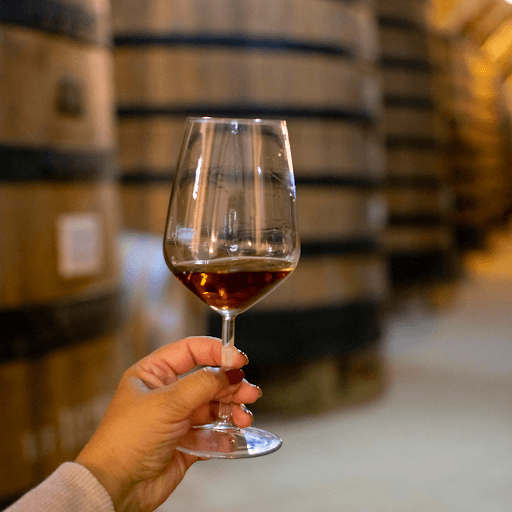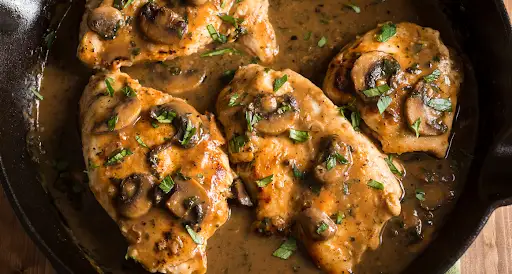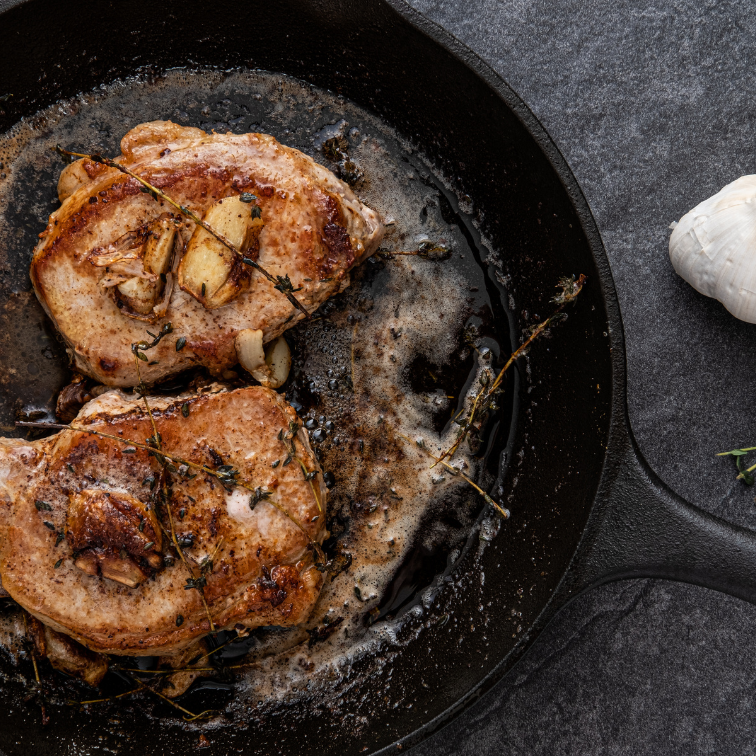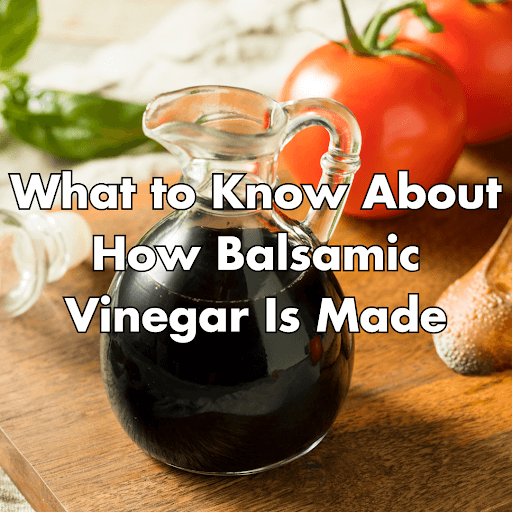Marsala wine, a renowned Sicilian fortified wine, has captivated chefs and home cooks alike with its rich flavors and versatility.
But can you drink Marsala cooking wine? In this post, I’ll delve into the history of Marsala wine, its various types, and its culinary uses.
We’ll also explore the best ways to incorporate this delicious wine into your dishes.
The History of Marsala Wine
- Origins: Marsala wine hails from the town of Marsala on the west coast of Sicily. It has been produced since the late 18th century.
- Production: Marsala production employs the solera system, a method also used in sherry wine and Madeira wine, which involves aging the wine in a series of barrels over a long time.
- Denominazione di Origine Controllata (DOC): Marsala wine has earned this prestigious Italian designation, which guarantees its quality and authenticity.
Can You Drink Marsala Cooking Wine?
Marsala cooking wine is specifically produced for culinary use, often with added salt and preservatives.
While it’s not harmful to drink, the taste is not as refined as drinking Marsala wine due to these additives. For a true Marsala experience, it’s best to enjoy a high-quality Marsala wine.
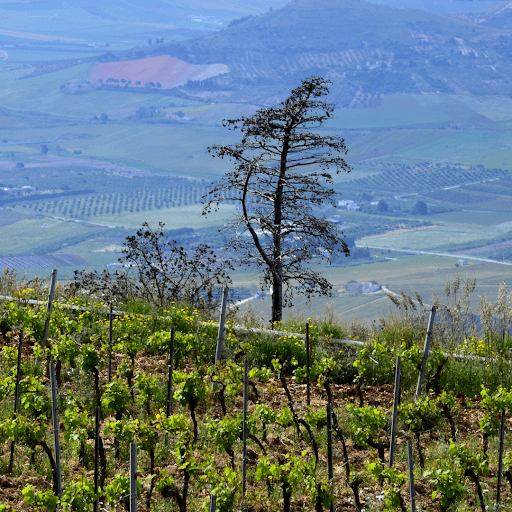
Types of Marsala Wine
- Dry Marsala (Secco): Contains less than 40 grams of residual sugar per liter. Ideal for savory dishes like chicken marsala and veal marsala.
- Semi-Dry Marsala (Semisecco): Contains 40-100 grams of residual sugar per liter. Versatile for both savory and sweet dishes.
- Sweet Marsala (Dolce): Contains over 100 grams of residual sugar per liter. Perfect for desserts and cheese pairings.
Different Styles of Marsala
- Fine Marsala: Aged for a minimum of one year.
- Superiore: Aged for at least two years.
- Superiore Riserva: Aged for a minimum of four years.
- Vergine e/o Soleras: Aged for at least five years, often longer.
Variety and Sweetness Levels of Marsala Wine
Marsala wine comes in a variety of styles and sweetness levels, catering to a range of tastes and culinary uses. The sweetness levels of Marsala are determined during the fermentation process, where winemakers can control the residual sugar content.
This results in different types of Marsala, from the dry style (Secco) to the much sweeter versions (Dolce). These variations allow for a versatile wine that can complement both savory and sweet dishes, making it a staple in Sicilian wines.
The Blend of Red and White Grapes in Marsala Wine
When exploring the world of wine, particularly Marsala, it’s fascinating to see how it bridges the gap between red and white wines. Marsala can be made from a mix of red grapes like Nero d’Avola and Nerello Mascalese, as well as white grapes, creating unique blends such as ruby Marsala and amber Marsala.
The inclusion of mosto cotto, cooked grape must, adds to the complexity of these wines, enhancing their rich flavors and deepening the color. Wine enthusiasts often seek out these high-quality Marsala wines for their nuanced taste profiles and longer shelf life, a true testament to their exceptional production methods.
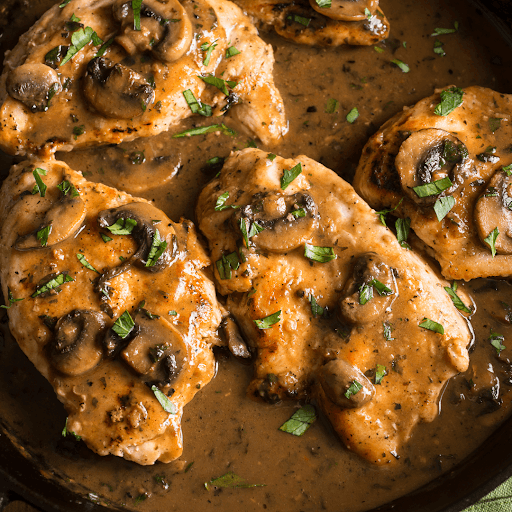
Ways to Use Marsala Cooking Wine In Savory Dishes
- Chicken Marsala: A classic dish where chicken breasts are sautéed with mushrooms and Marsala wine, creating a rich, flavorful sauce.
- Veal Marsala: Similar to chicken marsala, but using tender veal cutlets
- Marsala Sauce: Perfect for enhancing steaks, pork chops, or roasted vegetables. Combine Marsala with shallots, garlic, and cream for a delicious sauce.
In Sweet Dishes
- Tiramisu: Use sweet Marsala to moisten the ladyfingers for an extra depth of flavor.
- Zabaglione: An Italian custard dessert made with egg yolks, sugar, and sweet Marsala wine.
In Beverages
- Cocktails: Marsala can be used in cocktails for a unique twist. Try mixing it with sherry wine or Madeira wine for a complex drink.
- As an Aperitif: Enjoy a glass of Marsala wine at room temperature before a meal to stimulate your appetite.
- Poached Pears: Simmer pears in a mixture of sweet Marsala, brown sugar, and spices for a delightful and elegant dessert.
Nutritional Information
Marsala wine, like other wines, contains calories primarily from its alcohol and sugar content. Consuming Marsala in moderation is key to enjoying its benefits while minimizing health risks.
- Calories: Approximately 150-200 calories per 5-ounce glass, depending on the sweetness level.
- Alcohol Content: Generally between 15-20%, higher than regular wine.
How to Store Marsala Wine
- Unopened Bottles: Store in a cool, dark place. Marsala has a longer shelf life than regular wine due to its higher alcohol content.
- Opened Bottles: Keep in the refrigerator and use within 4-6 months for the best flavor. Make sure the bottle is tightly sealed.
Popular Brands and Producers
- Cantine Florio: One of the most famous Marsala producers, known for their high-quality wines.
- Roberto Magnisi: A respected name in the Marsala region, offering a range of styles.
- Local Wineries: Many local Sicilian wineries produce excellent Marsala wines. Look for DOC labels to ensure authenticity.
Food Pairings
- Savory Dishes: Marsala pairs well with rich, savory dishes like beef Wellington, blue cheese, and balsamic vinegar.
- Sweet Dishes: For desserts, pair sweet Marsala with pastries, chocolate, and fruit-based desserts.
- Cheese: Try Marsala with various cheeses, such as gorgonzola or aged cheddar.
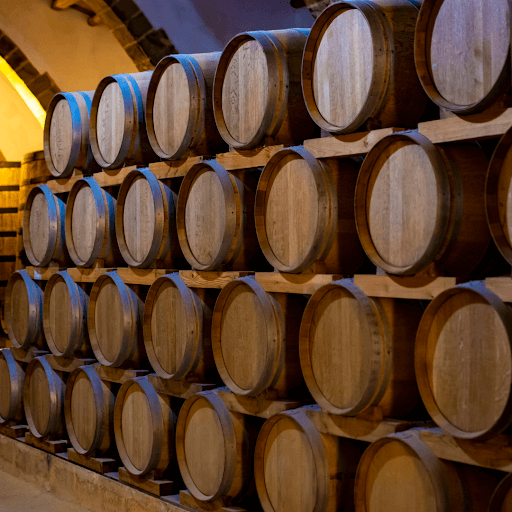
Future Trends in Marsala Wine
The future of Marsala wine looks promising as more wine enthusiasts in the United States discover its unique flavors and versatility. With a variety of styles ranging from dry Marsala wine to sweeter Marsalas, there’s a Marsala for every palate.
The best Marsala wine is often found in grocery stores, offering both younger wines and those with a longer shelf life. For those seeking a sweeter style, adding a touch of brown sugar or using it in dessert wine recipes can enhance its appeal.
As local wines from the Marsala region of Sicily gain popularity, expect to see more variations and food pairing suggestions in the future.
Marsala wine, with its rich history and versatile uses, is a wonderful addition to both your cooking and your glass. While Marsala cooking wine is crafted for culinary purposes, true Marsala wine offers a delightful drinking experience.
From enhancing savory dishes like chicken marsala to sweet desserts like zabaglione, Marsala’s rich flavors elevate any meal. So next time you’re at the grocery store or liquor store, consider picking up a bottle of this exquisite Sicilian wine. Cheers and happy cooking!

